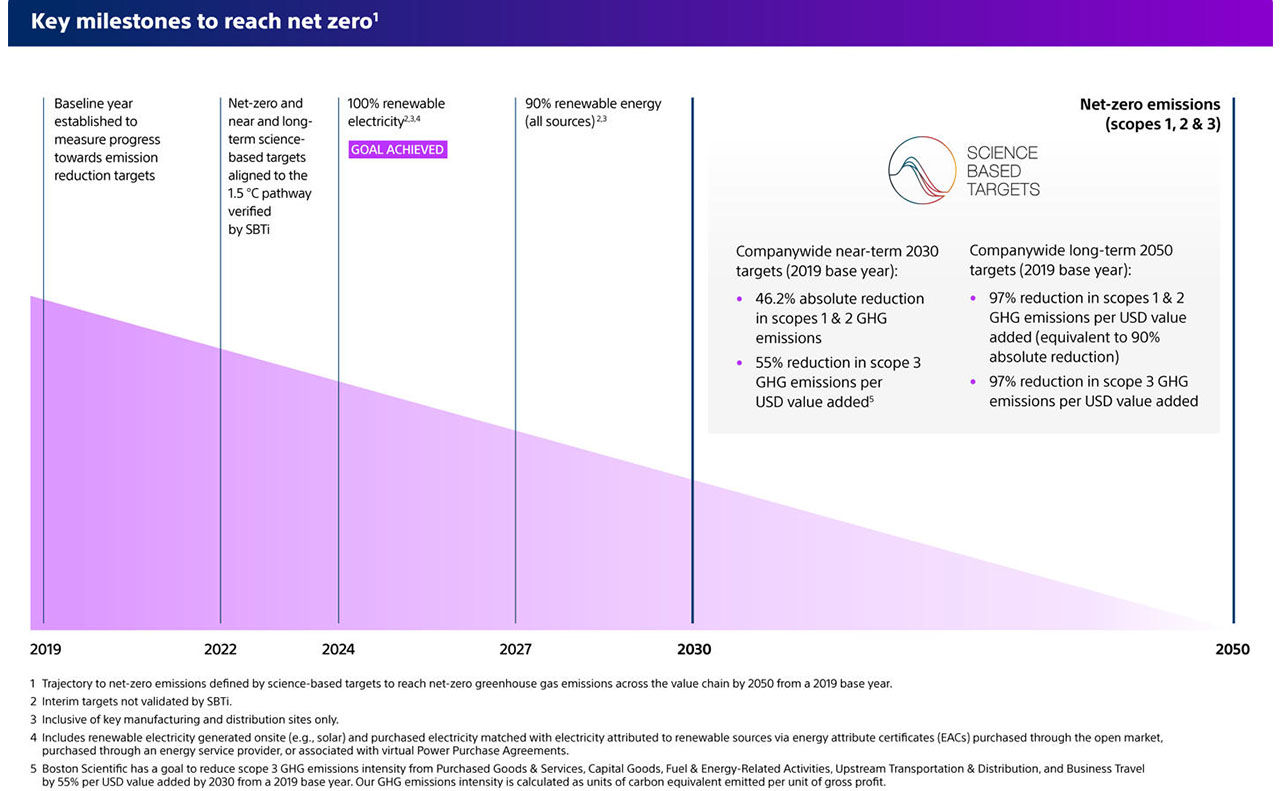Why it matters
We work to minimize waste and reduce our carbon footprint across our value chain, while investing in sustainable solutions that benefit healthcare providers, patients, employees and communities.
Boston Scientific accounts are for healthcare professionals only.
Create an account to access online training and education on EDUCARE, manage your customer profile, and connect with customer support and service teams.
My Boston Scientific account
Access your online applications and manage your customer profile.
Quick Links
Call customer care
We work to minimize waste and reduce our carbon footprint across our value chain, while investing in sustainable solutions that benefit healthcare providers, patients, employees and communities.
100%
renewable electricity at key manufacturing and distribution sites1
75%
of solid, non-hazardous waste recycled2
72%
real estate independently certified for energy efficiency3
In 2022, Boston Scientific became the first in the Healthcare Equipment and Supplies sector to receive Science Based Targets initiative (SBTi) approval for our net-zero emissions target by 2050—covering scopes 1, 2 and 3.4 We’re committed to measurable progress and transparent reporting.


As of July 29, 2022, the Science Based Targets initiative (SBTi) approved the Boston Scientific science-based net-zero target and near- and long-term emission reduction targets:
Overall Net-Zero Target
Boston Scientific Corporation aims to reach net-zero greenhouse gas (GHG) emissions across the value chain by 2050 from a 2019 base year.
Near-Term Targets
Boston Scientific Corporation aims to reduce absolute scope 1 & 2 GHG emissions by 46.2% by 2030 from a 2019 base year. We also aim to reduce scope 3 GHG emissions from:
Long-Term Targets
Boston Scientific Corporation aims to reduce scope 1 and 2 GHG emissions 97% per USD value added, equivalent to 90% absolute reduction, by 2050 from a 2019 base year. We also aim to reduce scope 3 GHG emissions by 97% per USD value added within the same timeframe.
In 2017, we became one of the first medical device manufacturers to pledge to achieve carbon neutrality by 2030 in all of our manufacturing and key distribution sites. This steady progress has been driven by our Global Energy Management System and our C3 strategy, which guides priorities and programs in the following areas:
Our Global Packaging and Labeling Sustainability team uses data to evaluate sustainable packaging materials, guide and quantify packaging sustainability improvements and support sustainable suppliers.
Our strategy focuses on:
We have set a goal to reduce our scope 3 GHG emissions by 55% per U.S. dollar (USD) value added by 2030.5 Collaborating with suppliers across our global supply chain is key to understanding and implementing sustainability initiatives that can have the most impact across our global supply chain.
We approach supplier engagement with a focus on the following:
We focus on driving more efficiency and sustainability in how our products are sourced, manufactured, packaged and distributed. This approach reduces resource consumption, lowers our carbon footprint and enhances supply chain efficiency. As a result, healthcare providers receive faster, more reliable product deliveries.